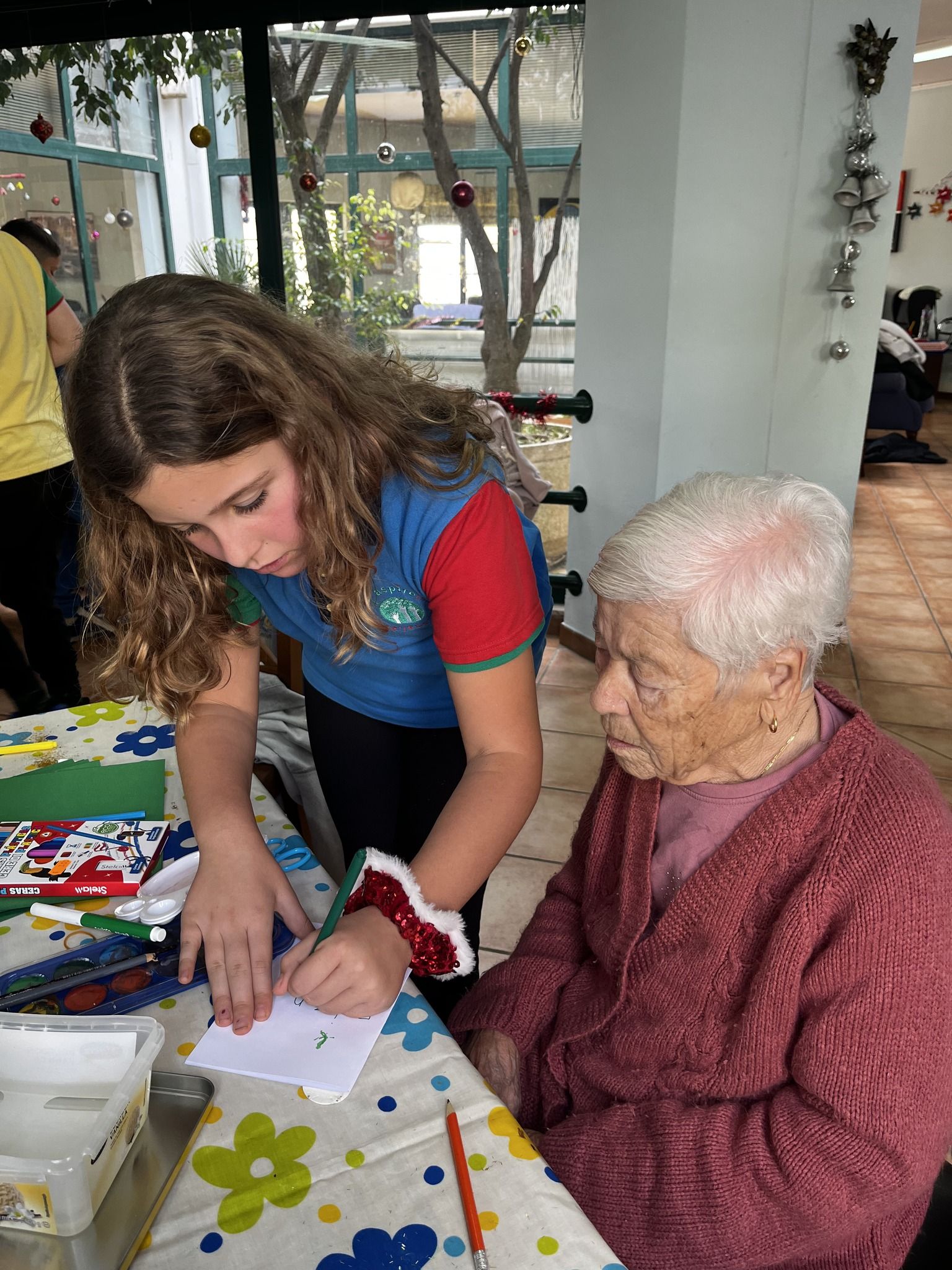Aspire International School (AIS), a British-curriculum school for children aged 3 to 18, has created a learning environment where languages are more than subjects; they are living, breathing elements of everyday life.
In its Primary and Preschool programmes, bilingual learning begins from the earliest years. Children are introduced to both Portuguese and English in a way that mirrors natural language acquisition, using conversation, storytelling, games, and daily routines to foster fluency. Importantly, this bilingual approach isn’t limited to designated language lessons. Instead, Portuguese and English flow fluidly throughout the curriculum, with staff members fluent in both languages supporting pupils across all subjects.
Whether learning to count using euros in a weekly class market or identifying native flora during nature walks, young learners encounter vocabulary and concepts in both languages simultaneously. The result is a rich, immersive environment where children develop a deep familiarity with the linguistic and cultural textures of their surroundings.
For Micaela Graça, the founder of Aspire’s Preschool and Primary, the emphasis on early bilingualism is both professional and personal. With a background in speech and language therapy, she is passionate about the cognitive and social benefits of early language exposure.

“Young children are natural language learners,” Graça explains. “They’re not afraid of making mistakes, and their brains are wired to pick up the nuances of sound, rhythm, and meaning. We’re not just teaching them to translate words—we’re helping them become confident communicators in multiple cultural contexts.”
Beyond the classroom
The school’s bilingual ethos extends beyond the classroom. Pupils learn about Portuguese national holidays, traditional foods, and local customs. Field trips and community projects help deepen their sense of place and belonging. This March, for example, students from Aspire took part in the local Carnival parade, joining in the festivities with handmade costumes and songs. It’s part of a broader commitment to helping international families connect with their adopted home in meaningful ways.
For many parents relocating to Portugal, especially those from non-Portuguese-speaking backgrounds, such integration is an important consideration. At AIS, the school’s approach to bilingualism offers not only linguistic skills but also a sense of identity and rootedness that can be hard to find in international education settings.
Aspire’s team recognises that creating the perfect balance between languages, cultures, and individual learning needs is an ongoing process. Kathryn Germain, one of the school’s directors, explained, “While we know we haven’t got everything perfectly balanced yet, we are constantly reflecting, adapting, and striving to improve - in partnership with our families and our community. This spirit of openness and evolution is central to the school’s identity and growth.”

In the school’s Secondary section, Portuguese continues to be a core part of the curriculum. From Key Stage 3 (ages 11 to 14), pupils receive as much instructional time in Portuguese as they do in English and Maths. The subject remains compulsory up to age 16, ensuring that students develop genuine proficiency. This is a distinctive feature of the school and reflects a long-term commitment to preparing students for life in Portugal, whether they remain in the country or move on to other international destinations.
In addition to language learning, secondary students also take part in cultural projects and service initiatives that connect them to their wider community. Recent examples include environmental clean-up efforts in local woodlands and collaborative art installations with nearby schools. These experiences are designed not just to enhance education but to instill a spirit of participation and civic responsibility.
Adapts
While the curriculum follows the structure of the English national system - with students working towards GCSEs and A-levels - the school adapts its programmes to reflect the needs of its international student body. Small class sizes remain a key feature throughout all stages. With a maximum of 12 students per class, teachers are able to tailor instruction to individual learning styles and needs. This personalised attention is especially valuable in language acquisition, where confidence-building and regular practice are essential.
Beyond academics, AIS aims to provide a nurturing environment that balances intellectual challenge with emotional well-being. Classrooms are lively and inclusive, with creative teaching strategies designed to keep learners engaged—whether that means staging a bilingual play, running a science experiment in two languages, or exploring local geography through Portuguese folk tales.

The school’s emphasis on human-centred education is reflected in its staff, who take on roles that go beyond traditional teaching. They act as mentors, cultural guides, and language models. The result is a learning atmosphere that feels more like a community than an institution - a place where children are known, supported, and encouraged to be themselves. As Portugal continues to attract families from around the world, the demand for education that bridges cultures is growing. Aspire International School represents one model of how this can be done - not by placing children in a bubble, but by opening the windows wide. Through language, culture, and community connection, the school helps young learners find their place not just in the classroom but in the world around them. “Na Aspire, acreditamos que a linguagem é a chave para a compreensão mútua e para uma verdadeira integração na sociedade portuguesa.” It’s a belief that runs through every lesson, every conversation, and every celebration of belonging.
For further information about Aspire International School, please visit www.aspireinternational.school or email learn@aspireinternational.school















